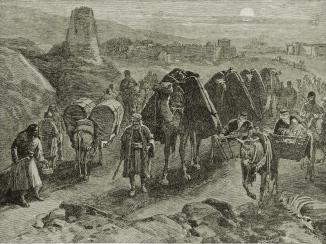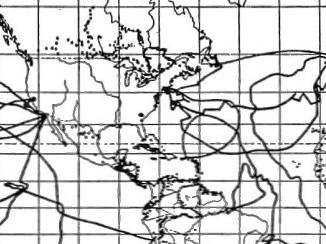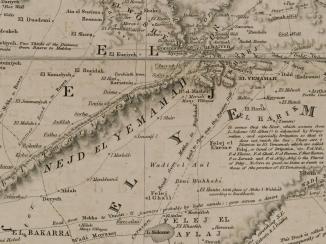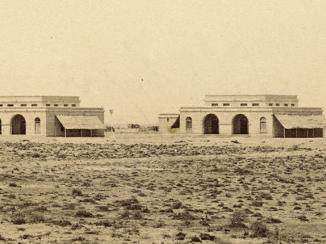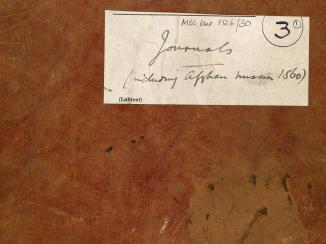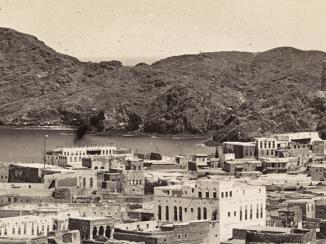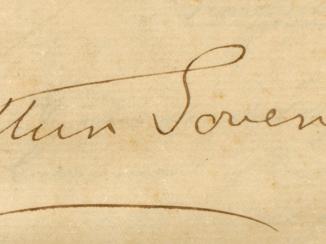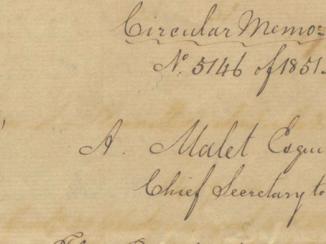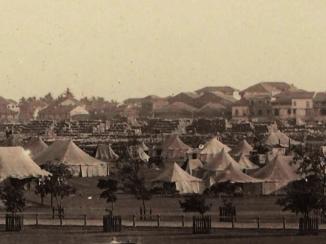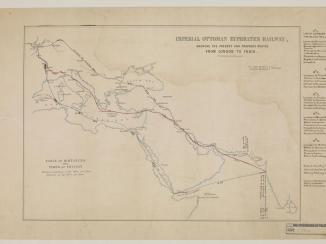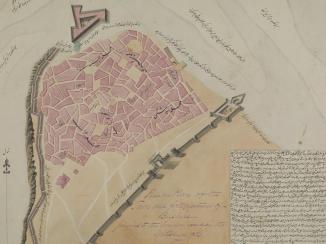Overview
Sir Lewis Pelly was a key figure in the history of the Gulf owing to his role, as British Political Resident A senior ranking political representative (equivalent to a Consul General) from the diplomatic corps of the Government of India or one of its subordinate provincial governments, in charge of a Political Residency. , in enforcing the region’s maritime peace treaties from 1862 to 1873.
In 1892, the year the ‘Exclusive Agreement’ permanently displaced the 1853 Perpetual Maritime Truce, one of the most important British residents in the history of the Gulf region, Sir Lewis Pelly, died in Cornwall. That moment marked the end of the British policy of non-involvement in the internal affairs of the Gulf as well as a sea-change in British policy in the region in the twentieth century.
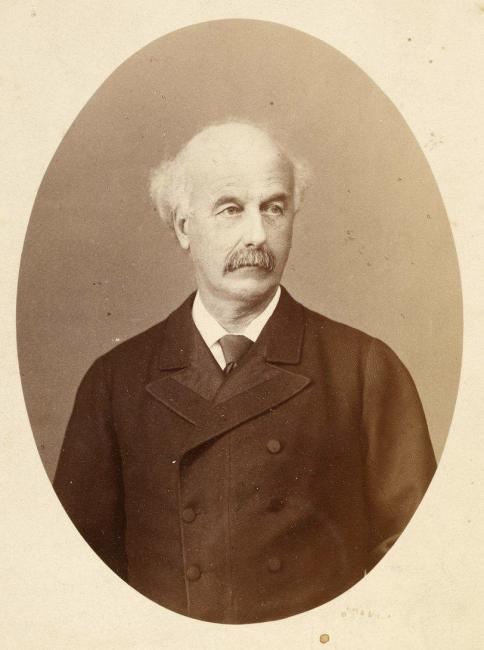
Early Life
At just sixteen years of age, Lewis Pelly set off from Minchinhampton, Gloucestershire for India. Like his father, John Hinde Pelly, who had been a member of the Bombay Civil Service, Lewis and his older brothers one by one enrolled in the East India Company training college and embarked upon a life in service to the Crown.
Pelly, who was born 14 November 1825, joined the East India Company at a pivotal moment when, in the wake of the end of their jealously guarded monopoly over trade in the Far East, the British were in the middle of the First Opium War (1839–42). Still, Pelly spent his early career serving in India, primarily in Sindh (now a province in Pakistan) where he served under General John Jacob.
The main portion of his career, however, was spent in Persia and around the Gulf littoral, serving at the Court of Persia from 1859–61 and as Political Resident A senior ranking political representative (equivalent to a Consul General) from the diplomatic corps of the Government of India or one of its subordinate provincial governments, in charge of a Political Residency. in the Gulf.

The Gulf’s Maritime Truce
In 1868, he visited Bahrain, Abu Dhabi and the coast of modern-day Qatar to protect British interests by enforcing the Perpetual Maritime Truce of 1853 following a series of raids by members of the tribes in the region. Pelly believed these had been primarily orchestrated by the ruler of Bahrain. In resolving this situation Colonel Pelly insisted on all tribes within the region re-affirming their commitment to the Maritime Truce and secured from the rulers of Bahrain, Qatar and Abu Dhabi official signed declarations to this effect.
This declaration, which was signed by Muḥammad bin Thānī, principal ruler of Qatari tribes, was the first recognition of Qatar as independent from Bahrain. Ultimately this treaty became the starting point for the British Government’s recognition of Qatar as an independent sovereign state in its own right.
The Telegraph
One legacy of Pelly’s tenure as Resident was the extension of the existing telegraph network. In 1860, lines ran from Basra to Baghdad and to major cities in Persia such as Shiraz, Tehran and Bushire, but these separate networks did not facilitate the transmission of British messages along the Persian coastline. Early in his time in the Gulf he began scoping out possible routes along the Persian coastline for this extension, settling finally on a coastal route between Bandar Abbas to Bandar Jask.

Pelly would continue to be involved with this work throughout his tenure by exploring possible routes for telegraph lines, assisting vessels laying underwater cables and negotiating treaties with local rulers to enable telegraph cables and stations to be built within their territories.
The Sultan of Muscat
Much of Pelly’s time in the Gulf was taken up with the British Government’s relations with the Sultan of Muscat. Pelly became a trusted ally of the Sultan, even acting as arbitrator in the Sultan’s ongoing dispute with the ruler of Nejd, and providing advice and support in military actions to secure Muscat’s borders.
Pelly the Traveller
As well as travel undertaken as part of his official posts, such as his trip through Afghanistan in 1860, Pelly travelled widely within the Gulf, often due to personal interests.
In particular, he travelled throughout Oman, Afghanistan, Persia, and Arabia, including a journey to Riyadh, which at that time, was almost unheard of for a European. In his later posts, he would travel to the Seychelles, the Comoros and Mozambique, which he took the opportunity to visit while posted to Zanzibar.
His travels gave him invaluable insights into the peoples, commerce and politics of the Gulf and beyond, and his meticulous reports and observations proved invaluable to the British Government when questions of telegraph communication, trade and politics were being considered.
Later Life and Career
Although Pelly undoubtedly brought about formative changes in the Gulf region, his political career was to continue in other parts of the British Empire.
Upon leaving his appointment as Resident to the Persian Gulf The historical term used to describe the body of water between the Arabian Peninsula and Iran. Pelly accompanied Sir Bartle Frere on an anti-slavery mission to East Africa, where he had previously been Political Agent A mid-ranking political representative (equivalent to a Consul) from the diplomatic corps of the Government of India or one of its subordinate provincial governments, in charge of a Political Agency. at Zanzibar (1861–62). In 1873, he was posted to Rajputana as Agent to the Governor-General, and also served as Chief-Commissioner of Baroda.
He resigned these posts and retired from the Indian Civil Service in 1877 at the age of 53. Afterwards, he met and married Amy Henrietta Lowder in 1878, later becoming an MP for North Hackney (1888–92). Apart from the somewhat unexpectedly supportive stance he took on women’s suffrage, Pelly lived out a remarkably sedentary final chapter in an otherwise notable and far-reaching career, dying in Falmouth, Cornwall, England on 22 April 1892.


